When it comes to improving flexibility and protecting joints during home workouts, most people think stretching, mobility routines, or supplements will do the trick. But the reality is: proper hydration is the foundation for joint health and flexibility. Without sufficient water intake, joints become stiff instead of smooth while cartilage becomes brittle, resulting in stiff movements.
This article delves deep into how water affects joint health and flexibility for home workouts, why even mild dehydration increases injury risk, and how you can create a hydration plan to safeguard yourself during strength training, yoga, HIIT or cardio at home.
The Science: How Water Supports Joint Health
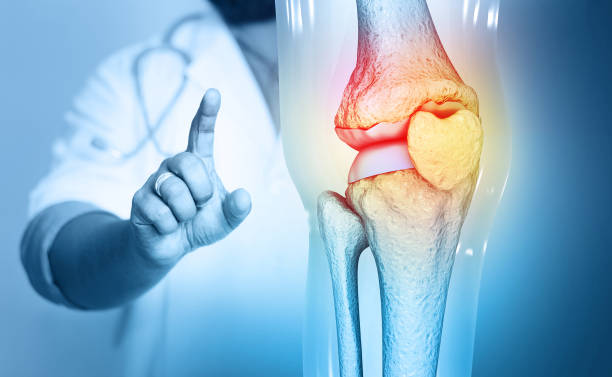
Joints and Synovial Fluid Rely on Water for Sustenance
Your joints work like an efficient machine, with synovial fluid serving as its oil. This thick water-based fluid fills the space between bones to reduce friction and cushion impact during movement, providing cushioned support and cushioned impact protection. However, without sufficient water the viscosity of synovial fluid deteriorates rapidly, leading to stiff or grinding joints as opposed to smooth movement.
- Synovial fluid is made up primarily of hyaluronic acid and water, so its level of hydration has a direct bearing on its ability to keep your joints moving comfortably (source).
- Cartilage shock absorption depends on hydration levels within a joint capsule; when these levels drop too low, this equilibrium becomes unbalanced, creating increased strain on bones and connective tissues.
- Home fitness movements like squats, push-ups and yoga flows that involve repetitive motion can accelerate wear and tear without proper lubrication, raising the risk of long-term issues like arthritis.
Fitness takeaway: Dehydration before and during a workout reduces joint lubrication, making every rep and stretch more taxing on your body.
Cartilage Requires Hydration in Order to Stay Elastic
Cartilage serves as a cushion between bones in your joints and water, protecting you from direct bone-on-bone contact and acting as a shock absorber. Many are unaware that cartilage contains up to 80% water!
Similar to muscle, cartilage does not receive direct blood supply but instead relies on what’s known as the “sponge effect”, in which water absorbs into cartilage when pressure is applied (for instance during walking or exercising) and is released once that pressure has been removed.
- This compression-decompression cycle ensures water and nutrients can continue to pass into and out of cartilage cells, keeping it nourished and resilient.
- Dehydration causes cartilage to lose elasticity, become brittle, and fail to provide cushioned support for joints effectively – leading to micro-damage, inflammation, and pain (Arthritis Foundation).
- Even mild dehydration can make joints feel “craky” or stiff, particularly weight-bearing areas like your knees, hips and ankles–the areas most impacted during home workouts.
Real-Life Example: Have you noticed your knees ache after a body-weight workout, or that yoga classes leave your hips stiff? Hydration could very likely have been the root of this discomfort, and should not just be limited to mobility and stretching alone.
Hydration and Flexibility: Why Water Improves Your Range of Motion
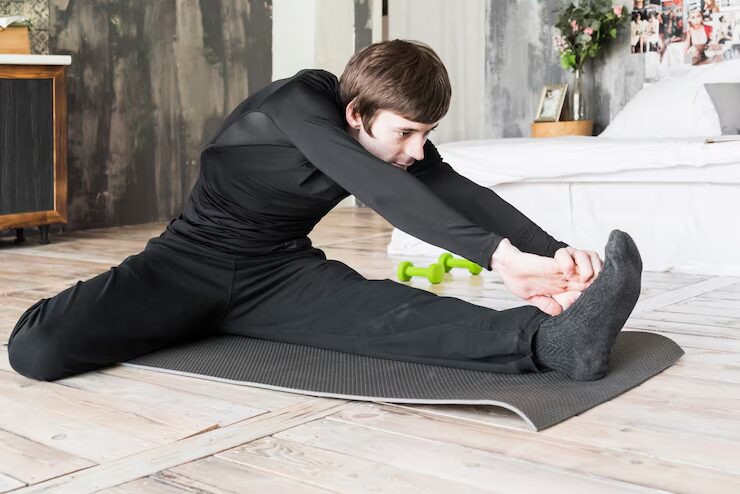
through water consumption, an invaluable aid to home workout performance! Water plays an indispensable part in this equation and remains an unheralded contributor to performance improvement in home workout sessions.
1. Water Maintains Tissue Elasticity
Muscles and connective tissues contain a considerable amount of water. When these tissues are well hydrated:
- These components remain flexible to allow for smooth movement.
- Tendons and ligaments retain their elasticity, helping reduce strain during stretching or dynamic exercises.
- Muscle fibers must move past each other efficiently to prevent stiffness and optimize contraction efficiency.
Dehydration (even as little as 1-2% of body-weight lost in fluid) can reduce flexibility and cause feelings of tightness during lengthy sessions such as Pilates, yoga or strength-training stretches (source).
2. Water Decreases Muscle and Joint Friction
Hydration directly impacts the viscosity of synovial fluid, which provides cushion for your joints and allows them to move more smoothly. Enough synovial fluid helps reduce friction between cartilage surfaces for greater range of motion:
- Dehydration causes synovial fluid to become less effective and contributes to joint stiffness, decreasing its flexibility and restricting movement.
- Home fitness enthusiasts may experience difficulties when performing simple exercises such as lunges, squats or downward dog. As a result, their workout can become harder and less fluid.
Study published in the European Journal of Applied Physiology demonstrated that participants who were mildly dehydrated showed decreased joint mobility and an increase in perceived stiffness during stretching routines .
3. Water Regulates Electrolytes That Support Mobility
Electrolytes such as sodium, potassium and magnesium are necessary for nerve signaling and muscle contraction. When you become dehydrated:
- Electrolyte balance has been disturbed.
- Muscles become susceptible to cramping.
- Because neuromuscular communication may be compromised, your ligaments may feel tight due to restricted neuromuscular coordination.
Flexibility requires more than stretching, however. Proper hydration and electrolyte balance is vital to long-term home workouts or high intensity sessions.
4. Hydration Promotes Recovery After Flexibility Workouts
Water is essential for transporting nutrients and excreting waste products out of muscles and connective tissues, so after stretching or mobility work:
- Hydration helps flush away lactic acid and other metabolic byproducts like lactate that cause post-workout tightness.
- Muscles and joints recover more rapidly, helping you maintain flexibility more efficiently over time.
Integrating water before, during, and after exercises is an easy but highly effective way to increase the benefits of flexibility training.
5. Tips to Maintain Hydration for Maximum Flexibility
- Pre-Workout Hydration: Drink 300-500ml (10-17oz) of water one to two hours prior to your training session.
- During exercise: For optimal performance during heat or high-intensity workouts, drink 100-200 ml (3-7 oz) every 15–20 minutes to stay hydrated and provide fuel.
- Post-workout: Replace lost fluids immediately post exercise; for increased sweat production, try pairing with electrolyte-rich foods such as sports drinks.
- Add foods that nourish both hydration and joint health: Watermelons, cucumbers, celery stalks, oranges and yogurt all offer essential hydration benefits for both.
Home gym enthusiasts who practice home flexibility workouts such as yoga or Pilates may want to read our comprehensive guide: Hydration Mistakes That Derail Home Fitness Progress, to make sure their hydration strategy supports optimal movement.
Hydration Strategies for Joint Health During Home Workouts
Pre-Workout Hydration
Consuming water before beginning any workout helps ensure that joints and tissues are well lubricated before movement begins, minimizing stiffness and injury risk.
- Recommendation: Drink approximately 500ml (17oz) of water two hours before beginning exercise.
- Strength Training Tip: For resistance workouts, please see our guide: How Much Water Should Be Drank Prior and Post Strength Training, which offers specific recommendations suited specifically to your regimen.
Hydration Strategies to Consider during Workout
- Drink 150-250ml (5-8oz) every 15–20 minutes during your session.
- Electrolytes should be added if your workout lasts over 45 minutes or if you sweat heavily.
- Staying hydrated mid-session ensures synovial fluid remains viscous and supports smooth joint motion.
Hydration Post Workout
Hydration after exercise is of vital importance in aiding recovery:
- Replenish fluids lost during your session: approximately 1.5 liters for every kilogram lost.
- Use hydration cues, like the 7 Signs You Aren’t Drinking Enough Water during Workouts, to identify deficits. Proper hydration at this stage assists nutrient delivery to cartilage, decreasing inflammation and soreness.
If you want the exact science-backed amount of water you need, make sure to use our free Water Intake Calculator .
Real-Life Scenario: Hydration and Flexibility in Home Workouts – A Case Study
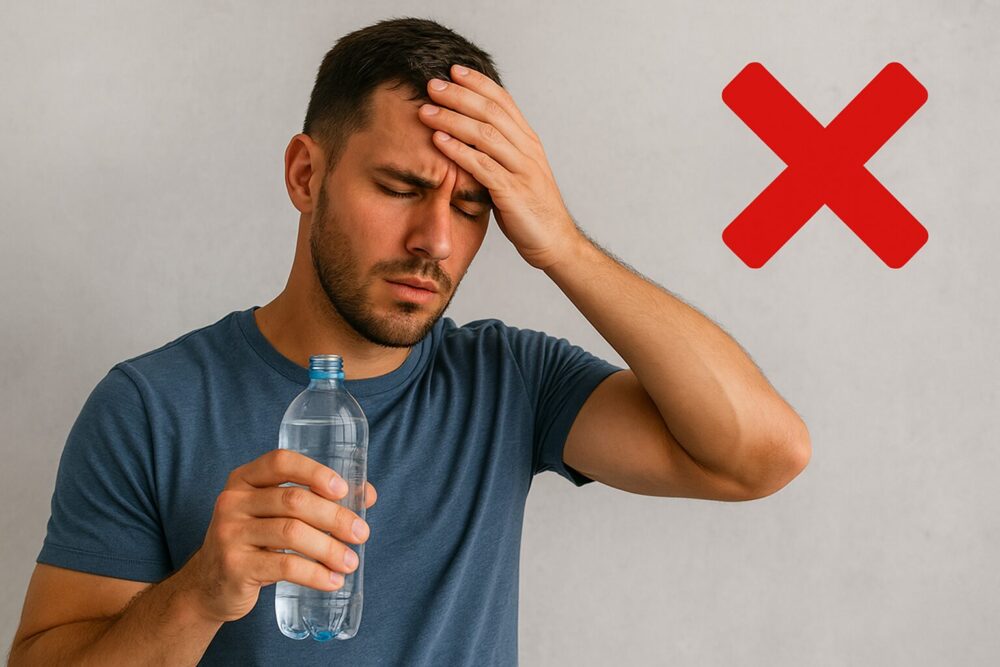
As a fitness coach who specializes in home workouts, I’ve witnessed first-hand how dehydration–or its absence, can have serious ramifications on flexibility, joint health, and performance. Let me share a real-life scenario that highlights why water plays such an essential role in maintaining efficient body movement.
Sarah and David joined my home fitness program with the goal of increasing strength, mobility, and flexibility. Both clients were committed to their workout regimens – including dynamic stretches, bodyweight exercises, Pilates-inspired mobility flows – but their water consumption habits differed drastically.
Sarah, a 32-year-old professional woman, prioritized drinking water throughout her day by keeping a 1-liter water bottle at her desk and sipping from it periodically – even during short breaks – even as other work tasks were being completed.
David on the other hand typically only drank when thirsty; often skipping fluid intake during morning workouts due to time restrictions.
Observations From Workouts
Within one week differences became readily apparent:
- Warm-Up and Mobility Exercise: Sarah found that her joints shifted fluidly, her hip openers and spinal twists felt smooth, and she reported only minimal stiffness. In contrast, David struggled to reach full range of motion in his stretches; his hamstrings felt tight while lunges caused him minor discomfort in his knees.
- Strength and Core Workouts: Sarah kept to proper form effortlessly, with cushioned joints feeling cushioned against strain during planks and push-ups without strain or fatigue; David experienced early fatigue as well as minor cramping in his calves and occasional joint stiffness that caused him to pause during sessions.
- Post-Workout Recovery: By day two, Sarah felt revitalized; her muscles felt looser, and she easily transitioned into mobility flows without difficulty. David however reported stiffness and soreness that lasted longer than expected preventing him from keeping to his routine as previously planned.
What Happened?
The key difference was hydration. Sarah’s consistent water consumption ensured her synovial fluid, cartilage, muscles and tendons remained well lubricated, range of motion improved significantly and recovery occurred faster for her than with David!!
Due to decreased joint lubrication, tissue stiffness and delayed nutrient delivery to muscle and cartilage – even minor dehydration (less than 2% body-weight) had serious implications on performance and flexibility.
Lessons Learned
From this experience, I emphasize three essential hydration lessons with my clients.
- Hydration should be an active rather than reactive effort: Don’t wait until you feel thirsty to drink water regularly before, during, and after workouts. Establish a routine water intake strategy.
- Hydration impacts flexibility and recovery: Proper water intake keeps tissues elastic and joints lubricated, increasing mobility while decreasing soreness.
- Hydration should be tailored specifically for you: Your workout intensity, body weight and environment all affect fluid needs; using tools like the Water intake Calculator ensures your hydration strategy matches up perfectly with your home workouts.
Conclusion
At the end, hydration is more than just about quenching thirst; it is at the core of joint health, flexibility and overall performance during home workouts.
Do not wait until stiffness or soreness slows you down to take control of your joint health! Start now by monitoring hydration and creating an individual water plan.
Our [Water Intake Calculator] offers an easy, science-backed solution that allows you to determine how much water your body requires before, during and after each workout session – staying hydrated will protect joints while unlocking full flexibility potential – you will thank yourself later.
FAQ
Can dehydration cause joint pain during home workouts?
Yes. Dehydration reduces synovial fluid, the natural lubricant of your joints, leading to stiffness, friction, and increased risk of pain during movement. Even mild dehydration can affect joint comfort.
Does hydration improve flexibility?
Yes. Well-hydrated tissues -muscles, ligaments, and cartilage- remain supple, increasing range of motion and allowing smoother, pain-free movements.
Can water prevent joint injuries during exercise?
Proper hydration reduces joint friction, supports cartilage elasticity, and helps transport nutrients for tissue repair, all of which lower the risk of injury.
How can I tell if my joints are under-hydrated?
Signs include:
Stiffness in knees, hips, or shoulders after workouts
Muscle cramps during stretching
Longer recovery times
Dark urine (indicating low hydration)






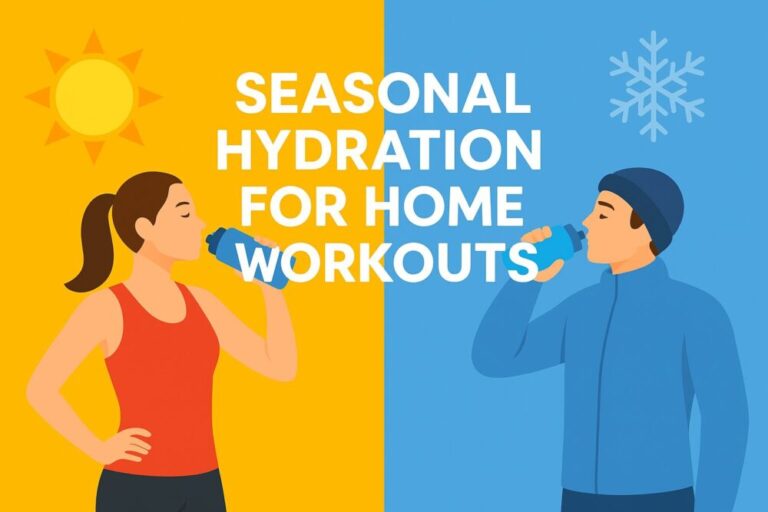
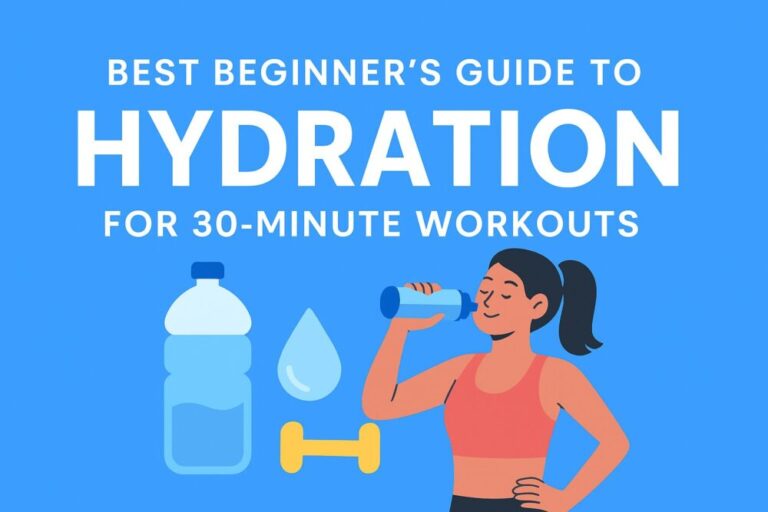
This article really opened my eyes to how much hydration impacts my home workouts! The real-life example with Sarah and David made it clear how much better I feel when I drink water consistently.
I’m glade this article was helpful 🙂
This was super insightful! I never thought about how dehydration impacts my flexibility so much. The real-life example with Sarah and David really drove home the importance of staying hydrated before, during, and after workouts for better joint health and performance.
This was super insightful! I never linked dehydration so clearly to joint stiffness during workouts. The real-life example with Sarah and David really drove home how vital hydration is for flexibility and performance.
Who knew hydration was such a secret agent for joint health and flexibility? This article is a hilarious wake-up call disguised as wellness advice! Who hasnt blamed their post-yoga knee ache or stiff hips on anything but dehydration? Now Im forever checking my water intake, fearing my tendons might plot a mutiny if I skip a sip. Apparently, my body is running on pure sarcasm until I water it down. Thanks for the hydration homework, Coach – my next goal is mastering the art of drinking *before* feeling thirsty.